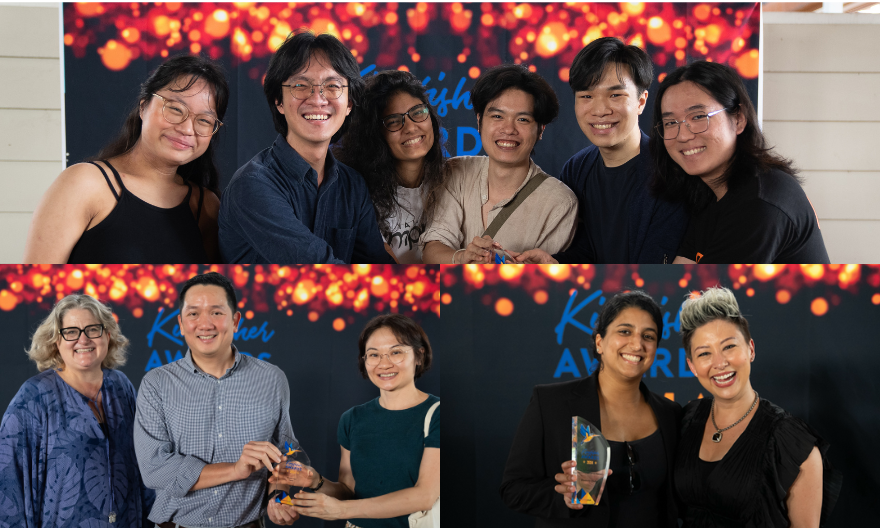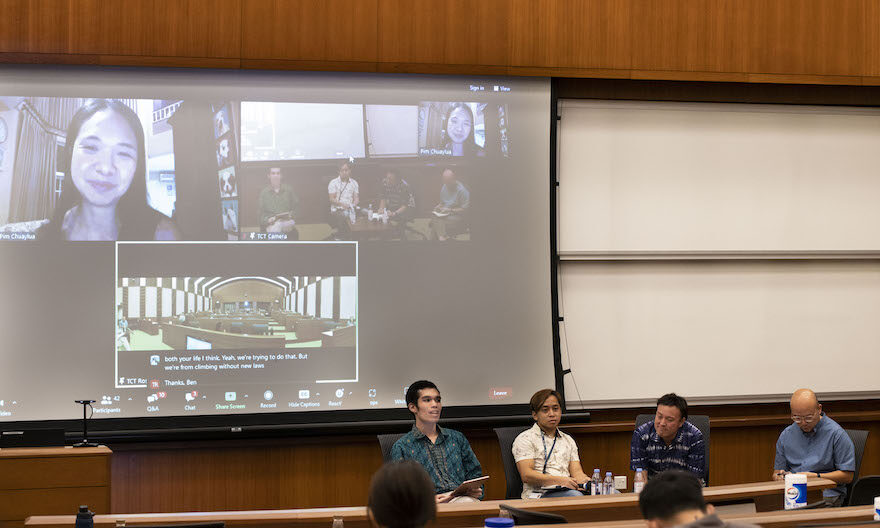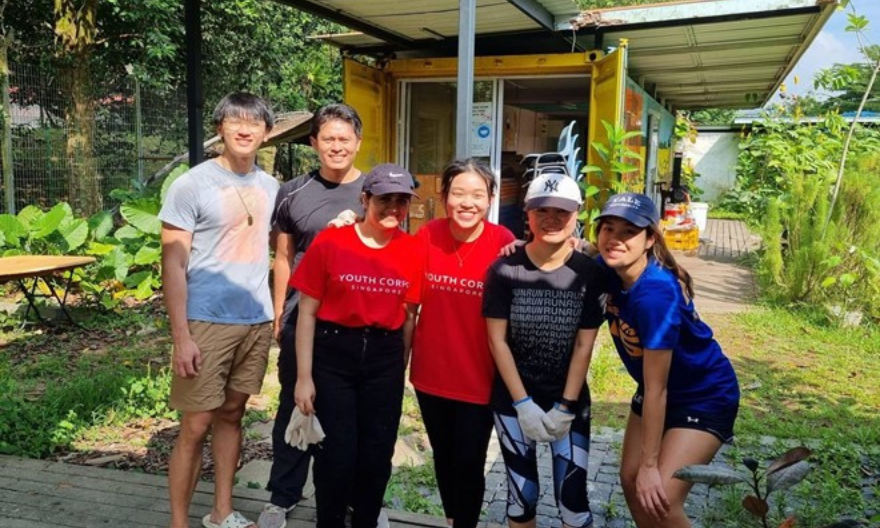Fostering a culture of accessibility at Yale-NUS
Student-led efforts strive to create equitable and inclusive campus spaces and communities
In recent years, education institutions have become increasingly cognisant of the fact that there is no one-size-fits all policy when it comes to student needs. Accessibility needs are often diverse, ranging from physical support structures like wheelchair ramps, to accommodating varied learning patterns, or even acknowledging socio-economic circumstances that would necessitate additional student support. As a residential college with a commitment to uphold inclusivity, Yale-NUS College seeks to foster a culture of accessibility both within and outside the classroom by working collaboratively with students and staff to create a more equitable campus.
Led by the Acting Dean of Students Cory Owen and Assistant Manager, Intercultural Engagement, Annette Wu, the Student Accessibility Services Office, under the purview of the Student Affairs Office (SAO), is primarily responsible for supporting students with accessibility needs on campus. Acting Dean Owen shared the development of student accessibility services on campus over time, “Over the last few years our services have expanded from just classroom and residential accommodations, to engaging the community through workshops, creating campus maps to identify points of access, and working with the College’s Infrastructure (Infra) Office to reduce barriers on campus, including our revamped evacuation protocols.”
In addition to providing holistic support for physical, cognitive and psychological accommodation requirements, SAO encourages students to spearhead their own initiatives within the community and nurtures opportunities to enable the College community to learn more about inclusivity and accommodating diverse needs in our daily lives. Policies such as call-outs for student note takers and transcribers to assist classmates with learning-related accessibility needs have undoubtedly helped students and staff foster a more disability-friendly culture in academic, residential and extracurricular settings.

(From left to right) Kimberly Quek (Class of 2025), Zahra Lalani (Class of 2025) and Acting Dean of Students Cory Owen at the CIS-EARCOS conference in Bangkok (Image provided by Acting Dean Owen for Yale-NUS)
Student initiatives often take centre stage in driving discourse about accessibility and inclusivity, as attested to by the many identity collectives and programmes that raise awareness and advocate for accessibility needs. Zahra Lalani and Kimberly Quek, both from the Class of 2025, have spearheaded many programmes for the d/Deaf and hard-of-hearing community, including hosting a weekly sign-language table at Elm dining hall, which stemmed from a collaboration event with a local social enterprise run by d/Deaf members, Don8uri, held during the College’s annual Diversity Week. They shared their experiences and knowledge in providing greater accessibility support at the Council of International Schools-East Asia Regional Council of Overseas Schools (CIS-EARCOS) 6th Annual Institute on International College Admissions and Guidance Conference in Bangkok last year as the event’s keynote speakers. The annual conference gathers the region’s counsellors and university representatives as they collaborate on topical issues and offer solutions to challenges faced in the region’s education industry.
As a member of the Attention Deficit Hyperactive Disorder (ADHD) Collective, Tushar Singh (Class of 2024) hopes to foster a space that can “raise awareness about ADHD, help struggling students get assistance with diagnosis and create a support group that they can rely on.” The Collective maintains a Telegram chat and hosts hangout events each semester to facilitate a safe space for students with ADHD to come together and share their concerns or questions about thriving as neurodiverse individuals living in neurotypical spaces.
For Annette, a Yale-NUS alumna herself, watching the growth of accessibility-related student groups has been an enriching process. “Many student-led efforts began as acts of self-advocacy and have quickly grown to build community awareness and shift practices in meaningful ways,” she noted.
“For example the G Spot has been creating safe spaces for LGBTQ+ students and providing community education since day one of the College. Identity collectives such as The In-Betweeners Collective (for First-Generation, Low-Income Students), the ADHD support group, and Body-Ody (the body neutrality collective) were all created by students to create the support systems their founders wished they had when they started college. The Kingfishers for Consent are a group of peer educators who have worked to build deeper understandings of consent culture on campus.”
It is not uncommon to find staff and faculty members contributing to or attending student-led events related to accessibility. For example, Rector Khoo Hoon Eng and Dean Owen have both shared their experience and advice on navigating college as FirstGeneration and/or Low-Income (FGLI) students in solidarity with FGLI students through various initiatives with the In-Betweeners collective in the past. Having faculty and staff support interest has undoubtedly helped create a space where accessibility concerns are openly embraced and discussed rather than shunned or ignored.
As we embrace inclusivity and diversity, it is important to celebrate the work that has been done, but also acknowledge the work that remains to be done in creating a campus that is accommodating of all our students’ needs.





